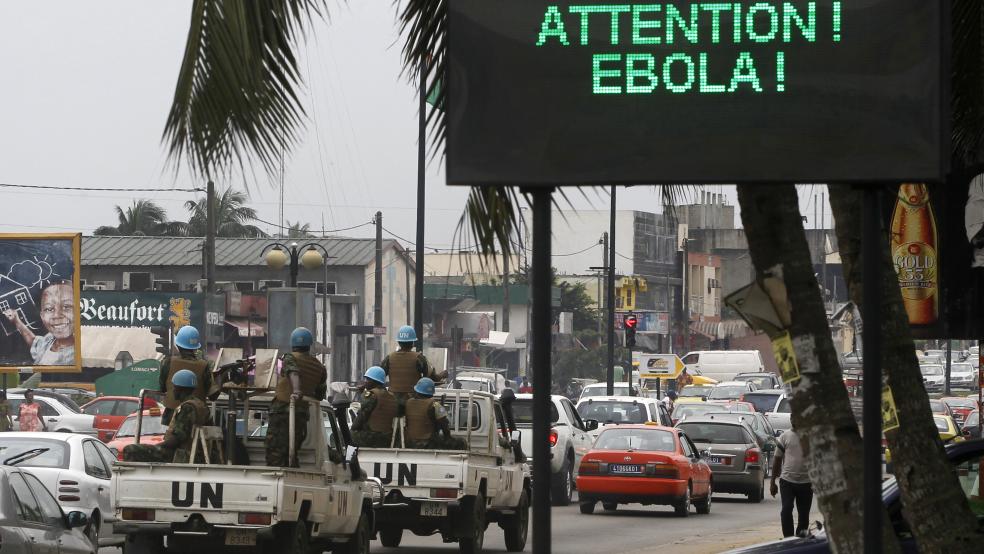Remember Ebola? The epidemic is still raging in Africa, but the panic in the U.S. has abated and the media, along with the American public, have mostly moved on.
Ten patients have been treated for the disease in the U.S., and two have died. (Given some of the political rhetoric and media coverage from October, it’s probably worth noting that some 330 million others didn’t). But the U.S. cases helped Ebola become the third-highest trending search term in the U.S. and globally this year, according to a list posted by Google.
Related: The Virus That’s More Likely to Kill You Than Ebola
“The early reports in March caused a surge, but it was when cases started to appear outside of Africa that searches hit a global scale,” Google said. By October, after the first U.S. case was confirmed, searches for “ebola” were 76 times higher than they had been in March, when the CDC issued its initial announcement about the outbreak in Guinea and suspected cases in Liberia and Sierra Leone, according to Google. You can see the spikes in searches, and the subsequent decline:
The media frenzy has similarly faded. “Over the course of November, Ebola mentions on CNN, Fox News and MSNBC dropped 82 percent, according to a review of closed caption transcripts. Mentions on the three cable networks dipped another 35 percent in the first week of December,” PolitiFact reported on Monday in naming the exaggerations about Ebola tossed about by politicians and pundits as its “2014 Lie of the Year.” (Philip Bump at The Washington Post points out our national obsession with ISIS has followed a very similar path.)
American interest in Ebola hasn’t entirely returned to the levels from earlier this year, and the media hasn’t entirely moved on. Time magazine, for example, just put the virus back in the U.S. spotlight by naming “Ebola fighters” — the medical personnel and others battling the spread of the disease — its “Person of the Year.”

But if widespread fears about an outbreak in the U.S. have largely disappeared, the epidemiological concerns about the growing toll in Africa have not. Progress in combatting the epidemic have helped it spread far less rapidly than some had projected early on. Still, the World Health Organization now says there have been more than 18,400 confirmed, probable and suspected cases of Ebola in Guinea, Liberia and Sierra Leone, and the reported death toll from the disease in those countries stands at 6,841.
Related: Why Obama Should Never Have Sent Troops to Fight Ebola
The United Nations’ Ebola czar, Dr. David Nabarro, said last week that it will take “several more months” before the outbreak in West Africa is under control.
Top Reads from The Fiscal Times:





